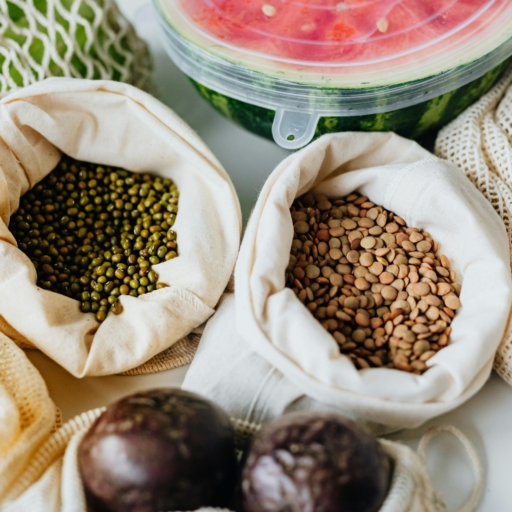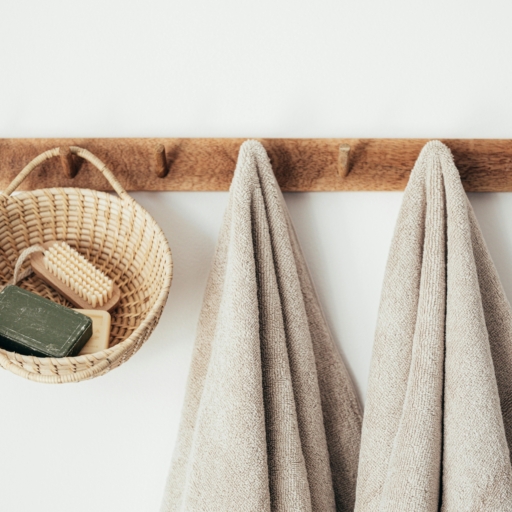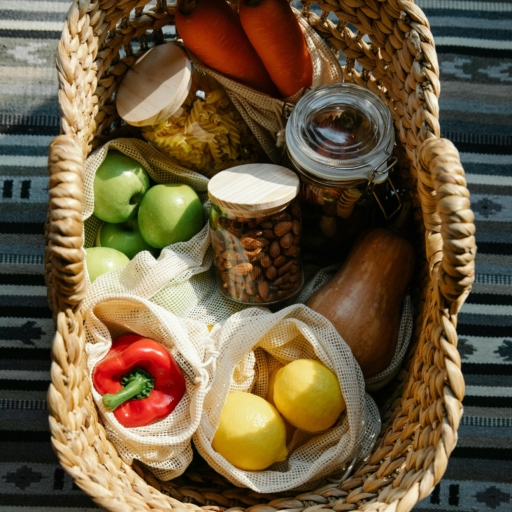Less waste idea
IDEA LESS WASTE – Produce Less Waste!
Yogurt containers, milk cartons, single-use plastic bags, cosmetic packaging, flyers and promotional leaflets, hygiene products, cotton pads, paper towels… These are just some of the waste items each of us disposes of daily. Annually, we generate over 300 kg per capita (GUS Poland, Environmental Report 2019).
LESS WASTE is a concept promoting a lifestyle aimed at reducing waste production by limiting consumption. It is based on the 6R principle:
Refuse – Say no.
Don’t use drinking straws.
Buy fruits and vegetables by weight without additional packaging.
Reject flyers in your mailbox.
Avoid unnecessary gadgets.
Opt out of paper tickets and receipts.
Drink tap water instead of bottled.
Choose ice cream in a cone rather than in a cup.
Reduce – Minimize consumption.
Use reusable items instead of single-use packaging:
Take a fabric bag for shopping instead of a plastic one.
Replace plastic sandwich bags with a lunch box.
Use reusable diapers, cotton pads, and menstrual cups.
Print on both sides of the paper.
Shop consciously – don’t buy in excess.
Reuse – Give items a second life.
Donate unwanted clothes, furniture, and toys to those in need.
Use jars for preserves or food storage.
Reuse gift bags.
Store small items in shoeboxes.
Repurpose candle jars as flower pots or vases.
Repair – Fix instead of discarding.
Use the services of tailors or cobblers.
Take a broken watch to a watchmaker.
Repair malfunctioning household appliances.
Restore or refurbish damaged furniture.
Recycle – Sort waste for recycling.
Choose recyclable products whenever possible.
Sort waste according to the 5-bin system in Gdańsk.
Important Reminders!
Pick metals and plastics bin to dispose of empty, crushed cans and plastic bottles, jar lids, plastic packaging, and crushed juice/milk cartons (tetrapaks).
Glass jars and bottles don’t need to be washed before disposal, but remove caps and lids first.
Only clean paper, newspapers, and cardboard should go into the paper bin. Remove tape from boxes and flatten them to save space.
Meat scraps should not go into the bio-waste bin. What you can dispose there is plant-based waste such as fruit and vegetable peels, eggshells, and coffee or tea grounds.
Residual waste bins should contain only non-recyclable waste.
Handle hazardous and special waste responsibly.
Large waste (e.g., furniture, carpets, large toys) should be placed near the waste shelter according to the collection schedule.
Construction and renovation waste (e.g., shower trays, bathtubs, toilet bowls, sinks, debris, doors, windows) should be taken to a municipal selective waste collection point (PSZOK) – up to 2 tons per year for free – or disposed of using a commercial service (e.g., a big-bag container).
Hazardous waste (e.g., fluorescent lamps, batteries, paints, used oils, expired medicines) should be taken to a PSZOK or handed over during mobile hazardous waste collection (OZON).
Large waste electrical and electronic equipment (e.g., TVs, washing machines, refrigerators, dishwashers) can be returned to stores when purchasing new equipment, taken to a PSZOK, or handed over during mobile hazardous waste collection (OZON). Collection from home can also be arranged through Gdańsk Municipal Services (tel. 58 722 01 00).
Small electronic waste (e.g., phones, cameras, chargers, curling irons, hairdryers) and batteries should be returned to stores when buying new items, placed in special red bins for small e-waste, taken to a PSZOK, or handed over during mobile hazardous waste collection (OZON).
Rot – Compost!
Composting is the best way to create your own soil conditioner while managing kitchen and garden waste.
Some organic waste can go into your compost bin instead of the general waste container, turning into valuable fertilizer over time. Composting is now possible not only in home gardens but also in urban settings. There are many models of compost bins available for apartments and balconies, and the compost produced can be used for houseplants.
Remember!
You can buy or make a compost bin:
A ready-made garden compost bin can be purchased in stores or garden centers. It is especially useful for small gardens with limited biodegradable waste.
A wooden slatted compost bin can be built from planks or treated beams, arranged to ensure airflow through the compost layers.
Composting in a heap is the simplest method, involving layering biodegradable materials directly on the ground.



